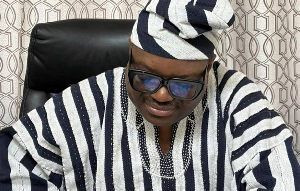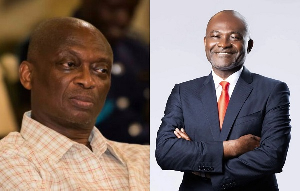The people in the theatre business have a working principle: There are no small roles; only small parts.
The messenger, whose only role in a three hour film was to deliver a letter to the protagonist, is as indispensable as the antagonist whose reaction to the contents of the letter sparked off the entire tragedy. The messenger part is small, compared to the Romeo who died in the end, but the message he delivered provided the rising action.
The theatre people also believe that their business mirrors life and all there is to life. So if occupations in life, such as law, medicine, accountancy and banking, are respected and deemed ends in themselves, why should acting be misread as an uncompleted script when actors and actresses are those who write the script of life…as it were? And, perhaps, it is well that unlike other professionals, actors are not keen to compare their occupations with medicine and law, and please themselves with any measure of importance. Otherwise, even the sloppiest actors should have the temerity to put themselves above many professionals–in terms of the sheer demands of the job and the intellectual energy that go into portraying a character.
I have tried law, journalism, copywriting, English and theatre arts. I haven’t made fantastic careers out of them; but I have learnt to agree so much with George Bernard Shaw, that all professions are mere conspiracies against the laity. In the course of the various roles I have held across all these professions, I have come into contact with many apologies that have succeeded in passing themselves off as consultants of the very art they have simply failed to master. Yet, they have held secured jobs as accountants, lawyers and medical doctors. They have not been asked whether they are working towards other professions–the question that Lydia Forson finds inappropriate and most offensive. Acting is a full-time job, she is emphatic.
Of course, Lydia was being very charitable. Acting is more than a full-time job. A fastidious director wants his lines delivered with every syllable contributing to the development of the plot. You spend months to rehearse thousands of words littered on the lifeless pages of a script. Yet, when you are called upon to deliver the rehearsed lines, they must not come out as though they were rehearsed, because you are in character. You must sound true and original to make verisimilitude sound similar to the truth. That is what the audience want to see and hear, complete with body language, great props, fine sound and unmistakable lighting. It takes a lot out of the soul. It takes a lot more from the flesh, too, especially where the soul is willing. It seems to be the case that behind every actor is a big story worthy to make a great film. Alfredo James Pacino (Al Pacino) is a fine product now, but he had been a hard story in the making, leaving school at age 17 to venture into the topsy-turvy world of underground theatre in New York. Unemployed during this trying period, he was mostly homeless, sleeping on the streets and in theatres, and when he was lucky, at friend’s houses. Today, he commands millions in appearance fees, commercials and endorsements.
In Nigeria, funny man Nkem Owoh has had his own life dramas apart from the many award-winning dramas he has portrayed on stage. While performing in Amsterdam, the Osuofia In London star was arrested with 100 other people on suspicions of lottery fraud and immigration irregularities. He would later be kidnapped in Nigeria in 2009 by money-hungry men who demanded a ransom of 15 million naira. He was kept until his family paid the criminals 1.4 million naira (probably Nkem’s own hard earned money).
Actors in Ghana pay a punitive price for merely opting to work in the entertainment industry. While many have fallen by the roadside because of our society’s rapacious disinterest in the arts, many more have lived to tell the story Ananse told. Even after serving Ghana with everything she ever worked and lived for, highly placed politicians in Ghana would mock Grace Omaboe’s profession as an actress when she contested for a Member of Parliament position. Others have been vilified for serving their nations with their talents, while medical doctors strike in and out of the hospitals. Who cares about the spine of actors to put them on a single spine salary?
Yet, the entertainers we see on our screens today have abandoned careers in medicine, law and teaching, to respond to a life call in the arts. Dustin Hoffman (the best actor I know) said no to medicine after leaving Santa Monica College to join the Pasadena Playhouse, where brand Hoffman was shaped. David Dontoh was meant to make props out of the stethoscope when he left Apam Secondary School with A levels in Biology, Physics, Chemistry and Mathematics, but when the call came he found reason to wear a costume for the stage instead of the scrubs at the medical wards. His own father was mad that he had decided to devote a good life to concert. For Nigeria’s Ofiafuluagu Mbaka, the pulpit was his destination until he heard Nollywood beckoning. Today, the question need not be asked whether actors are working towards another professional calling. Our Prince David has had a bite of Hollywood. Nadia could one day swap places with Angelina Jolie.
Movies of Sunday, 25 December 2011
Source: Kwesi Tawiah-Benjamin
This Actress Is Spot On: Acting Is Not A Pacifier
Opinions











